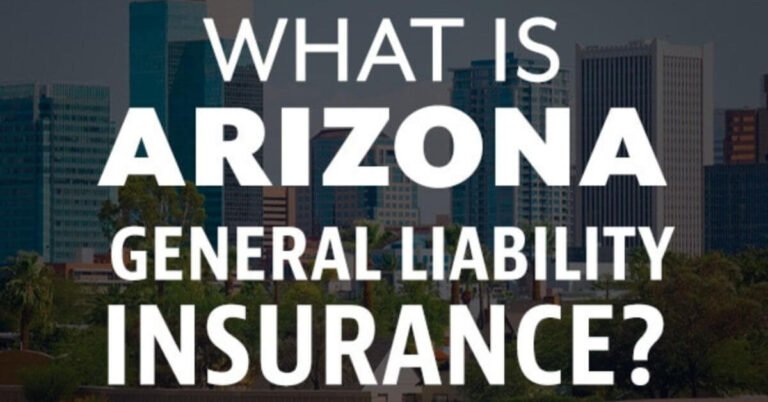Navigating Workers’ Compensation Certificate of Insurance: Your Comprehensive Guide
Think of a workers’ compensation certificate of insurance as a special paper proving you are covered. It’s like a summary page for your insurance, putting all the essential details about your policy in one place. This document proves you have the workers’ compensation certificate of insurance you need.
Workers’ Compensation Insurance Coverage
Most states make it a rule: if you have a business with at least one employee, you need workers’ compensation insurance. In some places, even solo business owners, especially those in riskier jobs like specific construction work, might need it, too.
It takes care of the medical bills and the money you lose if you get hurt or sick because of your job. Your regular health insurance usually won’t cover these kinds of work-related accidents. So, having a workers’ compensation certificate of insurance is like having a safety net for your business and your employees.
Most workers’ comp plans also help with legal stuff if an employee sues you over a work injury or illness. But here’s the deal: if you want a workers’ compensation certificate of insurance, you’ve got to start by getting a policy first.
Risks of Going Without Workers’ Comp Insurance
It’s crucial to understand the significant risks associated with not having a workers’ compensation certificate of insurance. By neglecting this essential coverage, you expose yourself to potential employee lawsuits and the burden of unpaid medical bills in the unfortunate event of a workplace mishap.
Beyond the immediate consequences, the repercussions can extend to legal penalties, including fines and the possibility of license suspension or revocation, depending on the specific regulations in your state. To illustrate the severity of noncompliance with workers’ comp laws, let’s delve into examples of penalties imposed by some states:
- California: Employers in violation may face penalties of up to a year in jail, a minimum fine of $10,000, or a combination of both.
- Illinois: The state imposes fines of $500 for each day of noncompliance, with a minimum penalty set at $10,000.
- New York: Noncompliant employers in New York may be subject to misdemeanor or felony charges, accompanied by fines ranging from $1,000 to $50,000. An additional penalty of $2,000 can be imposed for every ten days without adequate coverage.
- Pennsylvania: Businesses failing to comply with workers’ comp laws in Pennsylvania may be punished with a third-degree felony, carrying a hefty fine of $15,000 and the potential for up to seven years of imprisonment.
- In summary, the absence of a workers’ compensation certificate of insurance not only jeopardizes the well-being of your employees but also exposes your business to severe financial and legal consequences. Ensuring compliance with workers’ comp laws is not just a legal requirement but a crucial step in safeguarding your business and its stakeholders from potentially devastating outcomes.
I Need Proof of Workers’ Compensation if I’m Self-Employed.
In some places, if you are a solo worker in specific risky jobs like construction or roofing, you might need a workers’ certificate of insurance. Even if the law doesn’t demand it, having this certificate might be necessary for contracts. Sometimes, self-employed folks can get a “ghost policy” to meet legal or contract needs cheaply. This policy covers nothing; it only covers a little but gets the paperwork done.
Many solo workers get workers’ compensation even when it is not required. Why? Because if they get hurt on the job, workers’ comp helps pay medical bills, something regular health insurance doesn’t do. Also, workers’ comp can help with lost wages if an injury keeps them from working. It’s like a safety net.
Information: Do Certificates of Insurance Include.
Your workers’ compensation certificate usually has:
- Your name or business name as the policyholder.
- Your unique workers’ compensation policy number.
- Information about coverage for business owners.
- Partners, LLC members, or corporate officers.
- Details about additional insured individuals.
- The policy’s start and end dates.
- A brief description of your business.
Your workers’ compensation certificate will only list the companies covered. It’s meant for your employees, not others. But, if your clients ask, you can add a “waiver of subrogation.” This waiver protects your clients from claims related to your employee’s injuries. You can see an example of a workers’ comp certificate in this sample ACORD certificate of liability insurance.
Get A Workers’ Compensation Certificate of Insurance.
To obtain a certificate of insurance for workers’ compensation, it’s essential to have an active insurance policy. You can complete Insureon’s user-friendly online insurance application if you need coverage. This process allows you to receive quotes from top-rated carriers.
Once you have identified the workers’ comp policy that aligns with your needs, Agent will assist you in finalizing the policy details. Once the policy becomes active, you will be issued a certificate of insurance.
Top Professions We Insure
- Accountants and CPAs
- Advertising agency team reviewing a marketing plan.
- Advertising agencies
- Carpenters
- Computer repair and installation
- Day spas
- Electricians
- Engineers
- Flooring installation
- General contractors
- House cleaning
- Insurance agents and brokers
- IT consultants
- Janitorial services
- Landscape design
- Lawn care
- Management consultants
- Painters
- Real estate agents and brokers
- Restaurants
- Software developers
Need help finding your profession Don’t worry. We insure most businesses.
When Do You Need A Certificate of Workers’ Compensation Insurance?
In almost every state, you need workers’ compensation insurance if you have a business with employees. It’s a worker’s compensation certificate of insurance. It’s like your coverage ID.
You might need proof of insurance when:
- Signing a client contract
- Joining a business partnership
- Offering services to the government
- Applying for a license, especially in building trades.
A worker’s compensation certificate of insurance (COI) is like telling your clients you can pay for medical bills and lost wages if an employee gets hurt. Plus, you’re following the state laws. Remember, if you have employees, you likely need workers’ comp. And in some places, even subcontractors are considered employees.








